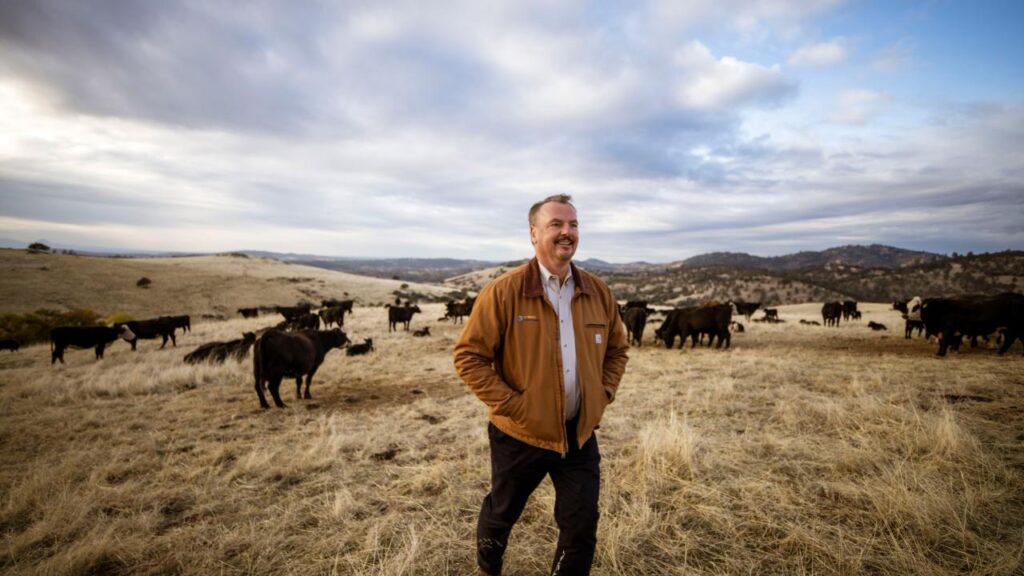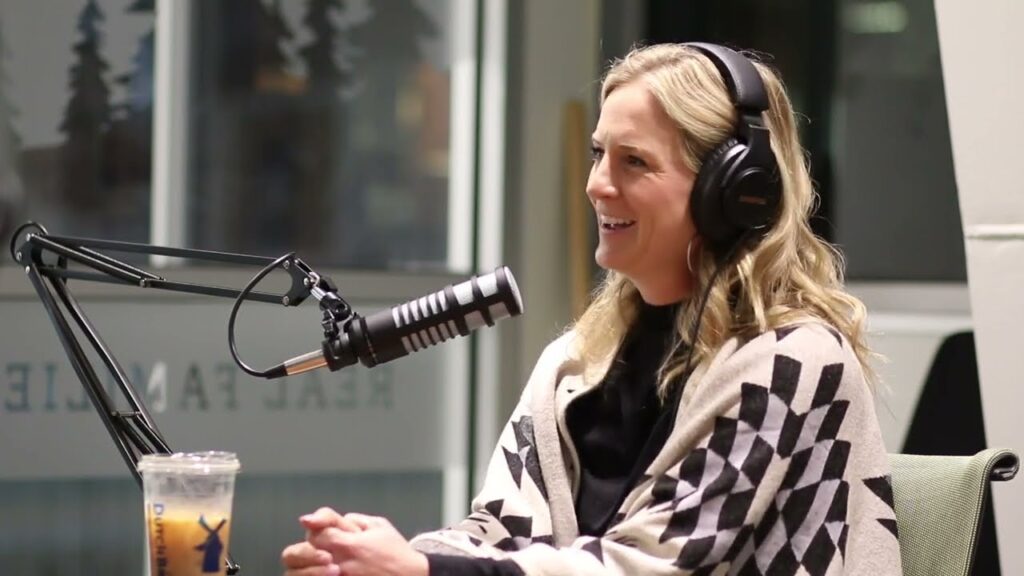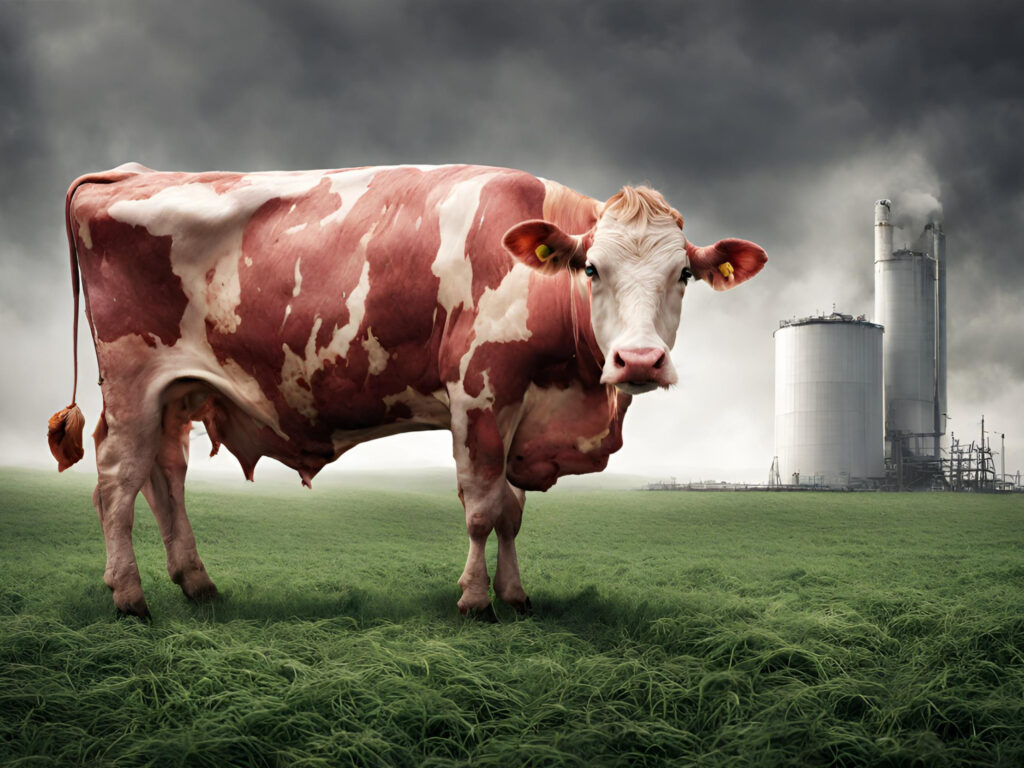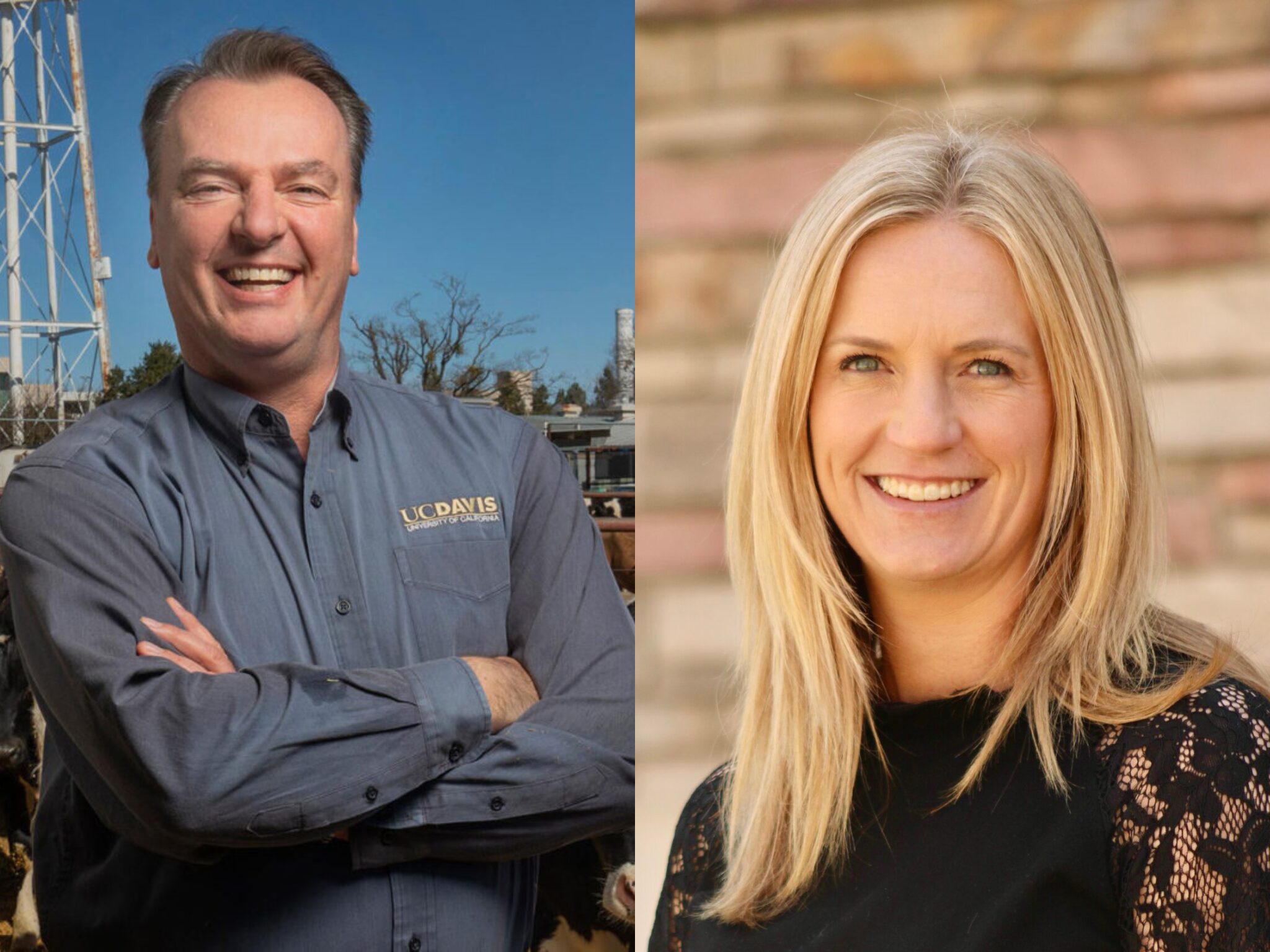How the Meat Industry Tapped Into Academia to Influence Climate Policy & Avoid Scrutiny
7 Mins Read
The meat industry’s PR prowess is well-known, but a new study digs deep into the sector’s reliance upon academics and universities to validate its pushback against research linking livestock farming to climate change, and influence government policies in their favour.
The last year has seen several investigations spotlight the animal agriculture industry’s misinformation campaigns and influence on policymaking – whether that’s blocking a ban on caged farming in the EU, crowding out COP28 to ensure favourable decisions, funding education schemes to shape children’s opinions on the sector, or even promoting an emissions metric that would downplay its carbon impact.
But perhaps the livestock lobby’s biggest initiative was to derail a landmark report by the UN Food and Agriculture Organization (FAO) in 2006, which essentially kickstarted the mainstream awareness of the climate impact of meat and dairy. Called Livestock’s Long Shadow, the research highlighted that livestock farming was responsible for 18% of global greenhouse gas emissions.
The reaction was binary: environmental activists and groups commended the publication, while the meat and dairy sector issued swift backlash. An investigation by the Guardian has shown how livestock lobbyists had successfully pressured the FAO to water down the environmental implications of animal-derived food, which subsequently led to the UN body revising that figure to 14.5%, and eventually 11%.
One of the report’s major criticisms highlighted an error on the part of the researchers, who had claimed that livestock’s impact on climate change was “an even larger contribution than the transportation sector worldwide” – but they had only analysed the full life-cycle of meat and dairy production, not the transportation industry. One of the authors called this a “slight methodological error” only inserted on request from the FAO press office, which wanted to hype up the report.
However, the damage was done, with mainstream media outlets including the BBC, the Telegraph and CNN calling out the inaccuracy, facilitating the move to discredit the report. It all stemmed from an article co-published by Frank Mitloehner, an animal scientist who is the head of the UC Davis Clarity and Leadership for Environmental Awareness and Research (CLEAR) Center. The FAO report’s authors noted that Mitloehner had “a point”, but suggested his article didn’t challenge any of the other information about livestock’s climate footprint.

Frank Mitloehner and his animal agriculture exploits
Mitloehner is the main focus of new research published in the journal Climate, which highlights how the meat and dairy industry took a page out of the tobacco and fossil fuel industries’ playbook to divert conversations from a product that causes harm. However, the key difference is that while the latter two focused on funding academics who published industry-friendly studies, Big Meat promoted university-affiliated figures who intervene in “public discourse, advocacy, and lobbying efforts”, one of the authors told the New Republic.
“The details of Mitloehner’s rise to prominence show that in the 21st century, it was possible for the animal agriculture industry to help build a reputation of scientific credibility on topics related to climate change and attract national attention for individuals for whom little to none previously existed,” the researchers write.
Mitloehner’s ties with the livestock lobby really began in 2009, when the Beef Checkoff programme – an industry-funded scheme that charges levies to cattle producers for marketing efforts to promote beef consumption – provided him with $26,000 to conduct an environmental impact assessment of the sector. The resulting study, which did not acknowledge the beef industry funding, didn’t dispute the FAO’s evidence, but instead claimed that American livestock’s contribution to US emissions was smaller than that of all livestock on a global scale.
An accompanying press release by UC Davis pointed out the discrepancy between the FAO’s comparison of livestock and transportation emissions, where Mitloehner described Livestock’s Long Shadow as a “lopsided analysis” that “truly confused the issue. “We certainly can reduce our greenhouse gas production, but not by consuming less meat and milk,” he stated, adding that “producing less meat and milk will only mean more hunger in poor countries”.
Since then, he has become a major animal agriculture industry figure, with trade publications calling him “the scientist who debunked Livestock’s Long Shadow” and “the scientist setting the record straight on cows and climate change”, despite him never being a climate scientist.
With over 33,000 followers on Twitter, he has previously advised Obama on agricultural research and policy, and published non-peer-reviewed papers with wide-reaching impact. One of them was credited for keeping a reduction in meat consumption out of the national dietary guidelines – despite Americans eating over six times more meat than recommended in a planet-friendly diet by the Eat-Lancet Commission.

Livestock farming, university centres and the impact on policy
Since 2018, Mitloehner has helmed the CLEAR Center at UC Davis, which has been described as “a well-known Big Ag conspirator”. The centre is funded by the Institute for Feed Education and Research (which has poured in $2.9M to date), and has received nearly $200,000 from the California Cattle Council. Mitloehner has received about $5.5M in research funding from industry groups since 2002, which represents 46% of his total $12M funding reported until 2021.
He has promoted the use of GWP*, a greenhouse gas measurement metric that drastically understates meat and dairy’s climate impact and has been branded as a greenwashing tool by environmental groups. Meanwhile, other researchers at UC Davis published a viral non-peer-reviewed study claiming that cultivated meat is 25 times worse for the environment than beef.
All this has had a sizeable policy impact. Irish government officials cited the cultivated meat study to push back on a proposal to cull 200,000 dairy cows over three years to cut agri-emissions by 25%, while EU countries used it in an Agrifish Council meeting last month to impose restrictions on cultivated meat. Meanwhile, GWP* has already been floated by proponents in New Zealand, Ireland, the US and the UK.
It goes to show the impact of academia on forming public perception and policy. The Climate journal research also looked into another academic centre, Colorado State University’s AgNext, which is headed by Kimberly Stackhouse-Lawson, a former student of Mitloehner’s and chief sustainability officer at JBS USA (a subsidiary of the world’s largest meat company).
Stackhouse-Lawson has said she “worked closely with communications professionals to promote beef’s image and defend beef’s freedom to operate to enhance consumer, influencer and stakeholder trust in beef” in her previous role at the National Cattlemen’s Beef Association, and noted that her “primary career objective is to expand the role of animal protein in global diets”.
She has appeared in JBS-sponsored content in The Wall Street Journal, Politico and Reuters, none of which mention her previous role as a JBS executive. At AgNext, she has formed industry partnerships, testified to Congress (where she said enhancing sustainability in livestock should only happen if it doesn’t sacrifice “value chain profitability”), and secured funding from multiple quarters. This involves $100,000 from the state of Colorado, $750,000 from industry groups, and $1M from the USDA.

‘Tip of the iceberg’
“Today, CLEAR and AgNext are among the most prominent US university centres engaged in shaping public understanding and public policy related to the livestock industry’s climate impacts,” the researchers wrote. “Industry-funded university-based researchers and centres have helped downplay livestock’s contributions to climate change, increase public trust that the industry is proactively reducing emissions on its own accord, and shape climate policymaking in the industry’s favour.”
Mitloehner called the research “ideological”. “I’m proud of the work I do in the CLEAR Center that is helping to further methane mitigation in livestock,” he told the New Republic. “I understand that some people want to see the livestock sector shrink or disappear, and they believe attacking me will further that cause, but my work and that of the CLEAR Center is moving the needle toward more sustainable food production. I would love to think we all want the same thing, food that nourishes a growing population with a smaller environmental footprint, but it’s clear some are threatened by that notion.”
But Jennifer Jacquet, one of the research’s lead authors, added: “This is the tip of the iceberg in terms of animal ag influence at universities because we were only looking at two universities and the topic of climate change. Once you broaden out to issues like other environmental impacts, nutrition/health, it gets incomprehensibly large.”
It’s clear how successful these efforts have been in influencing policymakers and the public alike. The question is: who can stop them?



